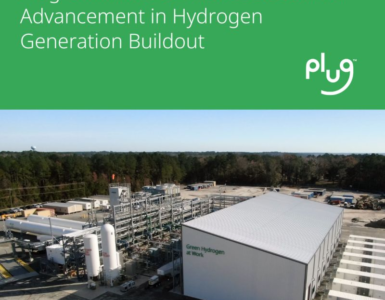Texas in position to lead hydrogen energy economy, new report says.
Texas’ legacy energy economy and geology are ideal for developing a robust hydrogen market, which will play an important role in sustainability, but a successful energy transition also requires a shift in policy and market structure, according to a new report from Rice University’s Baker Institute for Public Policy.
Converting the state’s legacy infrastructure and current industrial uses of hydrogen to low-carbon production technologies is likely the most expedient path to broader hydrogen use, the report argues.
Ken Medlock, senior director of the Baker Institute’s Center for Energy Studies, and Shih Yu (Elsie) Hung, research manager at the center, said:
🔥 What about we co-host a webinar? Let's educate, captivate, and convert the hydrogen economy!
Hydrogen Central is the global go-to online magazine for the hydrogen economy, we can help you host impactful webinars that become a global reference on your topic and are an evergreen source of leads. Click here to request more details
Texas is in a very advantageous position to play a leading role in driving hydrogen market growth, but the evolution of policy and market structure will dictate whether or not this comes to pass.
Hydrogen’s biggest strength is its diversity, Medlock and Hung argue. “It can be produced in a number of different ways — including steam-methane reforming, electrolysis and pyrolysis — so it can leverage a variety of comparative advantages across regions,” they wrote. Hydrogen can also be used in fuel cells to generate electricity or power and heat, according to the U.S. Department of Energy.
For Texas, using existing infrastructure will help manage the economic hurdles of transition and promote affordability. Texas has a large natural gas production, transport, storage and end-use footprint as well as a robust industrial sector that includes petroleum products, chemicals, and plastics. It is also home to the nation’s largest regional port capacity. All of this contributes to deep expertise in logistics and supply chain management.
The state also already has an existing hydrogen market with two-thirds of the country’s hydrogen transport infrastructure. Additionally, the coastal geology of Texas is ideal for long-term storage of hydrogen and carbon.
Yet, the extent to which hydrogen markets can expand will depend on federal, state and local policy frameworks. Policies that do not promote price and volume transparency can limit investment and prohibit the development needed to reach meaningful scale, the authors argue.
“(Hydrogen’s) expansion as an energy carrier beyond its traditional uses in industrial applications will depend heavily on 1) significant investment in infrastructure and 2) well-designed market structures with appropriate regulatory architectures,” they wrote. “A lack of either will risk coordination failure along hydrogen supply chains and, thus, threaten to derail any momentum that may currently be building.”
To successfully generate the scale needed for broad hydrogen adoption, policymakers must take a full value chain approach, the authors argue. While recent federal emphasis on infrastructure investment is helpful, market design must also be addressed to ensure long-term growth, they said.
The history of the U.S. natural gas market carries some important lessons regarding the roles of infrastructure investment and market structure in promoting market liquidity. Policies that support infrastructure investment along the entire supply chain and encourage competition and transparency could catalyze hydrogen market expansion, according to the report.
Funding for this study was provided by GTI Energy and The Cynthia and George Mitchell Foundation.
READ the latest news shaping the hydrogen market at Hydrogen Central
Texas in position to lead hydrogen energy economy, new report says, HOUSTON, February 16, 2023








